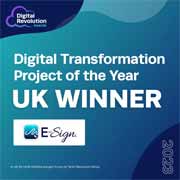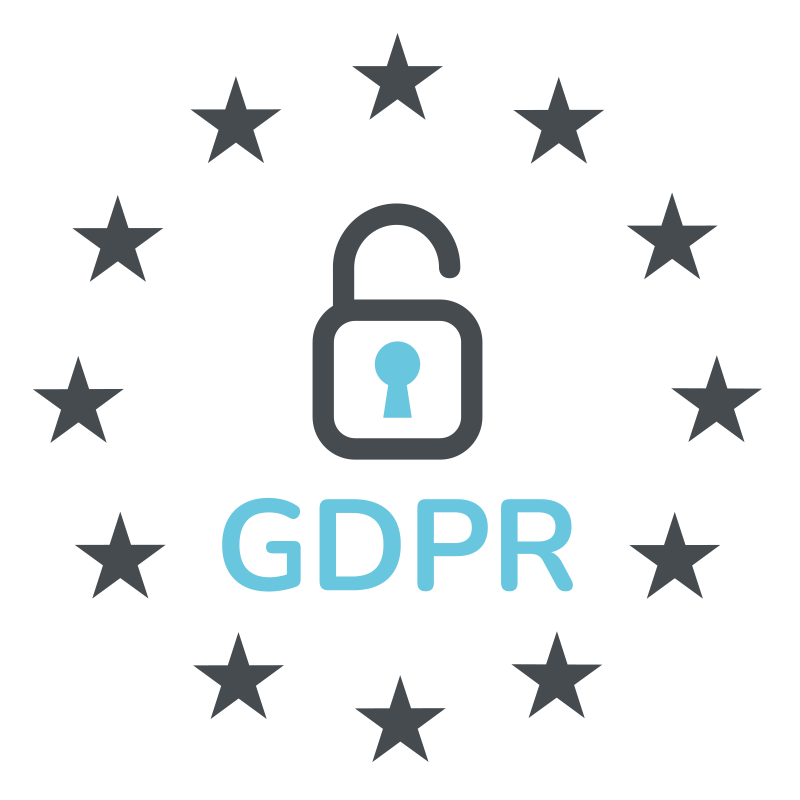Home | News & Insights |
The Impact of Electronic Signatures for Insurance Companies
Laura Cain
Marketing & Brand Manager
PUBLISHED
17th September, 2021
Contents
No contents found.
Whether you’re dealing with customers, brokers, or colleagues, managing paperwork, and collecting signatures are part and parcel of working in the insurance industry.
Processing a claim, creating a policy application, or filing a policy renewal are just some examples of the paper-based admin your insurance company will no doubt carry out on a day-to-day basis. Add to that the printing, scanning, posting, and filing and you can soon find your day filled up managing paper-based processes.
At E-Sign, we are here to tell you that there’s a much more efficient way of managing your insurance documents… by adopting an electronic signature across your insurance business.
What are E-Signatures?
Like their handwritten counterparts in the offline world, electronic signatures, or e-signatures, are 100% legally binding and indicate a signer’s intent to agree to the contents of a document or a set of data.
A legally binding advanced electronic signature must meet the following requirements:
- It is uniquely linked to the signatory
- It is capable of identifying the signatory
- It is created to be tamper-proof; any subsequent changes to the data must be detectable
Electronic signatures have been legal in the UK since the Electronic Communications Act 2000. As the way we work and live moves increasingly online, businesses across the UK are beginning to see the value in implementing not only an e-signature but also digital ways of working.
How Can E-signatures Benefit the Insurance Industry?
Whilst businesses across all sectors have something to gain by adopting e-signatures, the amount of documentation in the insurance world means this sector in particular has a lot to gain from making the switch. Here are 10 ways e-signatures can benefit the insurance sector.
-
Digitalising Documents
With an electronic signature on the case, you can say goodbye to the ‘paper’ part of paperwork across your insurance business. In the past, signing a document meant putting pen to paper, forcing businesses to print out countless bits of paperwork and scanning them to re-digitise. Electronic signatures allow you to keep your documents fully digital, every step of the way.
By implementing an electronic signature, you can create, e-sign and send your documents in just a few clicks, drastically reducing the amount of time it takes to get your paperwork to both customers and colleagues. Indeed, the Centre for Study of Insurance Operations (CSIO) found that processing a digital insurance application takes about 10 minutes versus 45 days when physical paperwork is involved, a drastic improvement in processing time.
-
Improving Workflows
For any modern insurance companies, an over-reliance on physical paperwork is perhaps the biggest obstacle to creating truly efficient workflows. It creates extra, unnecessary steps that add additional time to every task in the signing process. Printing, scanning, posting, or filing documents all use up valuable employee time and detract from more value-adding tasks.
It’s clear that paper-based processes can simply no longer keep up in such a busy sector. Electronic signatures can drastically improve your workflow efficiency and overall productivity, especially when it comes to documents that require multiple signatories. Sending documents to multiple parties is much easier with an electronic signature, even allowing you to specify signing order and automatically sending the document on to the next party.
-
Enhancing Customer Experience
Implementing a digital signature not only benefits your employees but also your customers, empowering your insurance company to offer a better customer experience. Whether your client is taking out a policy, renewing their insurance or making a claim, you’ll no doubt want the experience to be as easy as possible. All these actions involve filling in documents, and offering a digital option can certainly make life easier for those digitally inclined
customers.
An electronic signature allows you to send digital documents straight to your client’s inbox- all they need is an email address. In just a few clicks they can access, read, e-sign and return your document- there’s no need to make a trip to the post office or to return the forms in-person. This is especially handy for customers who are making a claim. It can often be a stressful or distressing time; the last thing they’ll want to do is struggle filling in the paperwork.
-
Creating Digital Audit Trails
For any business, in any sector, having a transparent and traceable audit trail is a must. This is especially true for the insurance sector; financial transactions and customer policies need to be recorded and stored for future reference. Using an electronic signature and digital documents make creating a digital audit trail easier.
Physical paperwork requires a lot of secure storage, taking up not only valuable office space but also your time. Paper-based documents need filing twice, once physically and then
digitally via scanning. An electronic signature eliminates all that, allowing you to simply download all your signed documents into your storage system and file them accordingly. This also makes it easier and quicker to retrieve documents in the future, allowing you to use search functions to find the files you need.
-
Increasing Document Security
Implementing a digital signature across your insurance business can help to improve your document security. With traditional paperwork, you can often end up sending sensitive contracts or documents via the post or arranging in-person meetings for every signature you collect. Neither option is ideal for your insurance company.
Sending documents for signing via your electronic signature provider is by far the more convenient and secure option. You can rest assured that confidential customer data will be protected by professional security measures such as encryption.
Many e-signature providers will also offer additional security add-ons such as SMS authentication or password protection. This will ensure that only authorised parties can access and view the information either via a unique password or via 2-factor authentication
-
Helping Businesses Go Green
If your insurance business is looking to make your operations more environmentally friendly, then implementing an electronic signature should definitely be at the top of your to-do list. An electronic signature allows you to significantly lower, if not entirely eliminate, paper usage across your company, ultimately helping your business dramatically reduce its waste production and carbon footprint.
Paper production is bad for the environment, contributing to mass deforestation, water waste and pollution. And that’s just to make the paper. Once it’s thrown away, it then continues to impact the planet, releasing greenhouse gases into the atmosphere as it’s burnt for energy or decays in a landfill. An electronic signature can help limit your business’s impact on the planet, allowing your insurance company to do its bit for the environment and operate more sustainably.
-
Saving Money on Supplies
Whilst investing in an electronic signature provider may seem like a more expensive option for signing and managing your documents, it can actually prove to be more cost-effective in the long run. Whilst the money spent on supplies such as paper, envelopes, stationery and filing supplies may seem minimal, these expenses can all add up, especially for insurance companies that rely on paperwork as part of their day-to-day operations.
Add to this the cost of printer ink and toner, as well as the maintenance costs of office equipment such as printers and scanners, and your business could make substantial savings by going paperless. Once you’ve subtracted the yearly cost of your digital signature, the remaining money that would have been spent on paperwork can be re-invested back into your business and employees.
-
Reducing Errors
With the sheer amount of paperwork that both your employees and customers have to manage, there’s bound to be the odd mistake or two. As the old saying goes ‘to err is human’ but when you have a business to run, every mistake can cost time and money. With electronic signatures and digital documents on the case, your insurance business can create better workflows that help to reduce the number of mistakes and errors.
Lengthy and complicated processes provide opportunities for making errors, returning incomplete forms or procrastinating completing documents altogether. Fixing these errors and chasing up documents all take time. Keeping your documents digital makes things simpler for your colleagues and clients, eliminating those unnecessary steps that make filling in insurance documents a time-consuming and confusing process.
-
Enabling Remote Working
The COVID-19 pandemic saw the closures of non-essential businesses and a move to remote working virtually overnight. This posed numerous challenges for businesses up and down the country, especially for companies that lacked the right technology and high levels of digital maturity. Indeed, companies that normally rely on paper-based processes no doubt found themselves struggling to replicate this workflow from home; many employees will not have had access to a printer or scanner.
Embracing greater digital working and electronic signatures will ensure your employees can continue working efficiently from home; all they’ll need is their computer and laptop to create, sign and send documents. This makes switching between office and home working easier, allowing your insurance business to offer flexible working options and empowering your employees to work from anywhere.
-
Driving Digital Transformation
Whilst implementing an electronic signature can bring a lot of immediate benefits, it can also help to drive long-term digital transformation across your insurance business. These days, more and more businesses are embracing digital technology as part of their daily operations, and it’s not hard to see why. It improves efficiency and productivity and can help to drive down operational costs in the long term.
Implementing digital processes can be intimidating, so much so that it’s tempting to stick with pen and paper. After all, if your business can operate that way then why not stick with what you know? Sadly, that’s no longer the case for many businesses and industries. Embracing digital ways of working is becoming less of an optional upgrade and more a necessity in the modern market. Indeed, if your business wants to stay competitive in an increasingly digital world, you need a solid digital strategy. The perfect place to start? An electronic signature.
E-Sign Brings Added Benefits to the Insurance Industry
Here at E-Sign, we not only offer an electronic signature but a whole range of digital tools to help guide your insurance business towards digital ways of working, including:
-
Embedded ID Checker
Designed with convenience and simplicity in mind, our E-Sign ID checker is integrated into our document management platform and electronic signature process. Simply click on the button underneath the sending options and incorporate real-world ID verification into the document signature process. For optimum verification, E-Sign asks your signers to enter their name, gender, birthday, address and either passport or driving licence details. This information is then checked against our live global ID database to confirm their identity.
-
Integrated Payment Gateways
Integrating a payment gateway into our platform combines what was once two separate transactions into one simple process. After connecting your payment gateway to E-Sign’s document management platform, you can easily add a payment request via our Payment Tags. When your signer accesses and e-signs your document, they can also instantly transfer the payment, so you receive money straight into your account.
-
Out-of-the-Box Connectors
We know how important it is that your business applications work together. That’s why we’ve created our range of ready to use connectors to connect and integrate E-Sign to any other software. With the ability to integrate your electronic signature and digital document platform into any other vital software, E-Sign will help you create bespoke workflows that truly work for your business.
Try E-Sign For Free Today
If you’d like to discover the benefits of E-Sign for yourself, try our 14-day free trial today. We’ll never ask you for payment information, so you can try our electronic signature and digital tools without any risk or commitment.
E-Sign is a leading provider of digital transaction management solutions, supplying professional services including Electronic Signatures, Web Forms, ID Checker, Verification Tools, Personalised Emails, API and Payment Processing to businesses of all sizes across the UK.
To find out more about our E-Sign solutions and how they could transform your business, get in touch with us today.
 Facebook
Facebook
 X (Twitter)
X (Twitter)
 LinkedIn
LinkedIn











